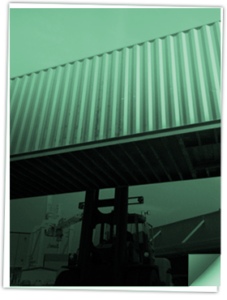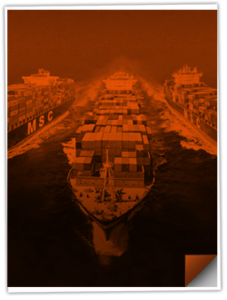Featured Headlines:
Additional Russian Products EAR-Marked for Sanctions
US Springs 232 Steel Suspensions for Ukraine
APHIS Will Require Online Filing
International House of News Breaks
Additional Russian Products EAR-Marked for Sanctions
- This week, the Bureau of Industry and Security (BIS) announced additional regulations to expand sanctions against Russia. BIS added 205 6-digit harmonized tariff schedule (HTS) codes and 478 corresponding 10-digit Schedule B numbers to its ruling published on May 9th; however, officials later clarified that the license requirements were only limited to the 238 items listed in the unique HTS description column of the updated supplement.
- Shipments of products found on the list of HTS descriptions in Supplement 4 may proceed as scheduled if they are en route on board a carrier to the port of export, reexport, or in-country transfer by May 9, 2022.
- Any license applications of items affected by this rule considered necessary for health, safety and/or humanitarian needs will be reviewed on a case-by-case basis by the BIS; all others are subject to a policy of denial.
- Click here to view the official Federal Register Notice.
US Springs 232 Steel Suspensions for Ukraine
- On May 9th, the US Secretary of Commerce, Gina Raimondo, announced that the US will temporarily suspend Section 232 tariffs on steel imported from Ukraine for one year to help support one of the industries hardest hit by Russian aggression.
- Officials from both the European Commission and Canada have hopped on the bandwagon—both have separately revealed plans to cancel duties on Ukrainian imports temporarily as well.
- To read the full announcement from the Commerce Department, click here.
FDA Closing VQIP Portal Soon
- The Food and Drug Administration (FDA) will close the Voluntary Qualified Import Program (VQIP) application portal on May 31, 2022.
- VQIP is a fee-based volunteer program that provides several benefits for food importers; however, those interested in participating must meet specific FDA requirements.
- Click here to view CSMS #51803879.
APHIS Will Require Online Filing
- Animal and Plant Health Inspection Service (APHIS) Veterinary Services (VS) will require submission of all new and renewal permit applications for live animals and animal products, organisms, and vectors via the APHIS eFile system effective May 31, 2022.
- Click here to view CSMS #51819834—which includes helpful video tutorials and eFile support.
Domestic Pit Stop Back Drop
- Despite improved drayage availability scores for over 50% of the top 40 busiest US gateways and ports for the first time since 2020, nearly 25% are still plagued by persistent equipment problems and congestion.
- US intermodal rail volumes dropped 6.6% year-on-year in Q1 2022, with the international container business dropping by over 15%, marking the third straight quarter of decline for the segment.
- Railroads, already facing government criticism, have struggled with labor shortages, congested terminals, and equipment misalignment; however, government officials point to a lack of overall investment from Class 1 railroads as the broader root cause.
- Major LTL carriers—including Forward Air and Estes (among others)—are expanding their drayage divisions and warehouse holdings to increase their participation in the growing US transload business across the country. Recently, Forward Air announced the purchase of Egmon Trucking and their 70-truck drayage fleet in Washington State.
- The Surface Transportation Board (STB) has requested all US Class 1 railroads to submit weekly reports on performance, hiring stats, and overall improvement plans.
- Yellow Roadway Corporation (YRC) has announced plans to consolidate 20 facilities, while closing an additional 9 as part of a scheme to promote cargo densities and efficiencies. The company will also rebrand by consolidating their four LTL operations into a single company called ‘One Yellow’.
OFAC Rushes Russian Attack
- The Office of Foreign Assets Control (OFAC), a part of the US Department of the Treasury, announced that providing management consulting, accounting, trust, and corporate formation services to any party in the Russian Federation will be prohibited as of June 7, 2022.
- OFAC further clarified that “accounting services includes any services related to the measurement, processing, and transfer of financial data about economic entities. Trust and corporate formation services includes services related to assisting persons in forming or structuring legal entities, such as trusts and corporations.”
- The policy enhancement effectively blocks any US citizen from providing most professional services, serving on boards, and assisting on mergers and acquisitions.
- In recent weeks, OFAC has designated 120 individuals and entities as Specially Designated Nationals (SDN) on the Blocked Persons List; it has also barred over 70 vessels from access to US ports.
Global Shipping Grab Bag
- While hopes were high that the Shanghai lockdown would end after the May Labor Day celebration in China, local authorities have extended the lockdown to at least the end of the Dragon Boat Festival—June 6th.
- The Suez Canal, which processes nearly 2,000 vessels per month, announced its highest monthly revenue in April, surpassing $600 million; overall, revenues rose 13.6% year-on-year, while vessel volumes grew by 6.3%.
- The European Union (EU) is focused on a plan to ship Ukraine’s vital stocks of agricultural products by land to avoid Russian-blocked Black Sea ports.
- SE Asian countries are increasingly vocal in expressing their disappointment in the US on broad trade issues. As SE Asian regional leaders assemble in Washington this week, President Biden will have his hands full strengthening business ties with Vietnam, Thailand, Malaysia, and Indonesia.
- As Boris Johnson’s government considers revoking trade commitments with Northern Ireland, the EU has warned that it will almost certainly launch infringement actions against the UK if the revocation occurs.
- Beginning Sunday, May 15th, EU and US high-level officials will meet in Paris to hammer out details on cooperation on technology and trade to create a unified supply chain front against Russia.
This Flippin’ Ocean Shippin’
- Despite prolonged Shanghai lockdowns, Transpacific blank sailings will reach their lowest levels since the onset of the pandemic in the second and third weeks of May 2022. The trade expects those levels to hover near 10% after many weeks above 20%.
- Just as Los Angeles and Long Beach (LA/LB) finally lower the number of vessels at anchor, the Port of New York has experienced a large up-tick—with nearly 20 vessels waiting in the harbor—and is also facing an acute shortage of empty containers and chassis.
- While FAK rates from China to the US have fallen a mere 2% since Lunar New Year, shippers are getting overall cost relief by avoiding premium offerings. An estimated 40% fewer containers have moved on premium in the last 30 days vs. the first 30 after Lunar New Year.
- Quite surprisingly, rates from Asia to the USEC (including surcharges) have fallen much more sharply than USWC offerings. With ILWU fears and growing frustration with LA port congestion, many pundits predicted a large shift to the USEC with rate increases. In fact, rates are down 10% to EC since January and down only 2% to WC.
- Q1 import volumes in the US grew an additional 4.7% vs. the record-breaking volumes in Q4 2021; however, this trend is not expected to extend into Q2 with Chinese lockdowns and some softening of demand.
International House of News Breaks
- The US government has allotted an additional $234 million for the Port Infrastructure Development Program (PIDP), which marks the biggest investment in annual funding for US ports in history. The program aims to improve port efficiency, reliability, and safety nationwide.
- Global airfreight grew by nearly 15% in 2021, which was about double the growth rate for ocean freight. The annual value of air cargo has reached $128 billion.
- On the strength of a 34% year-over-year increase in retail imports, South Carolina Ports announced their 14th straight month of record volumes. Overall growth YTD in 2022 stands at 15%.
- In December and January, average transit times to the USWC were higher than to the USEC! This is believed to be the only time since containerization in 1950’s that we have witnessed this anomaly without a West Coast port strike.
- Since WC transits reached a peak in December, they have fallen an impressive 46%. Unfortunately for USEC shippers, transits may not have peaked yet; in fact, they have reached 50 days matching the WC’s December level. Blech.



